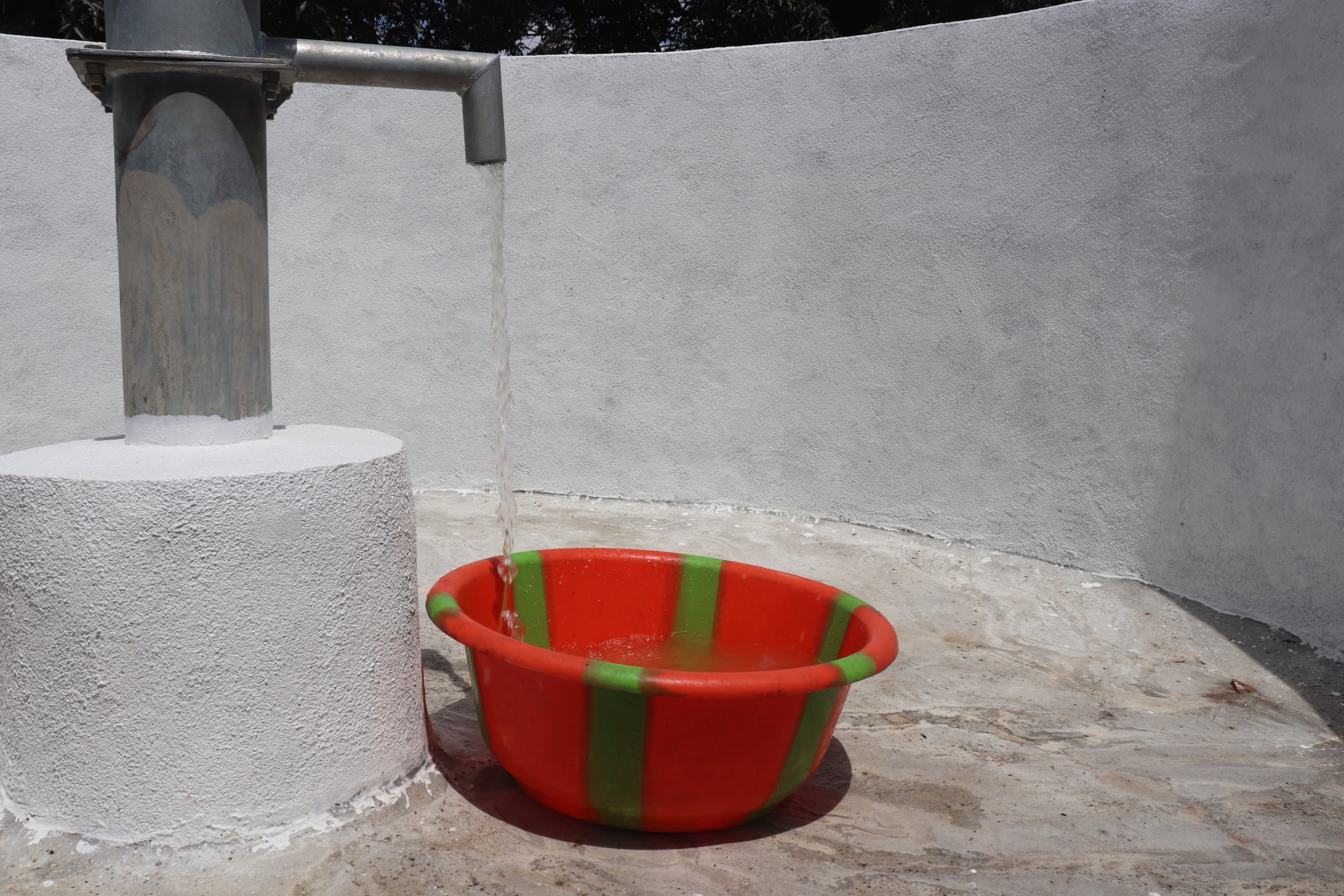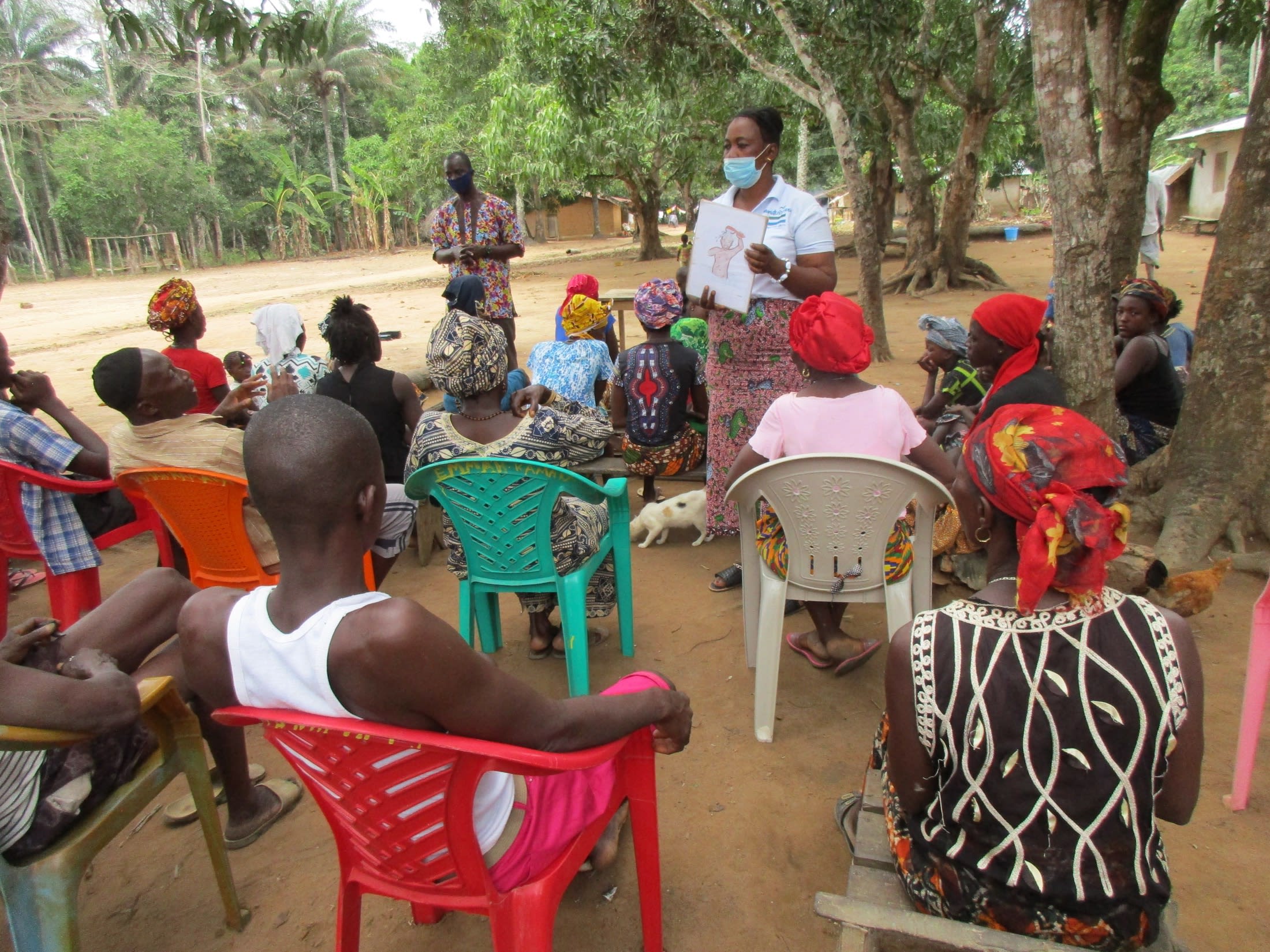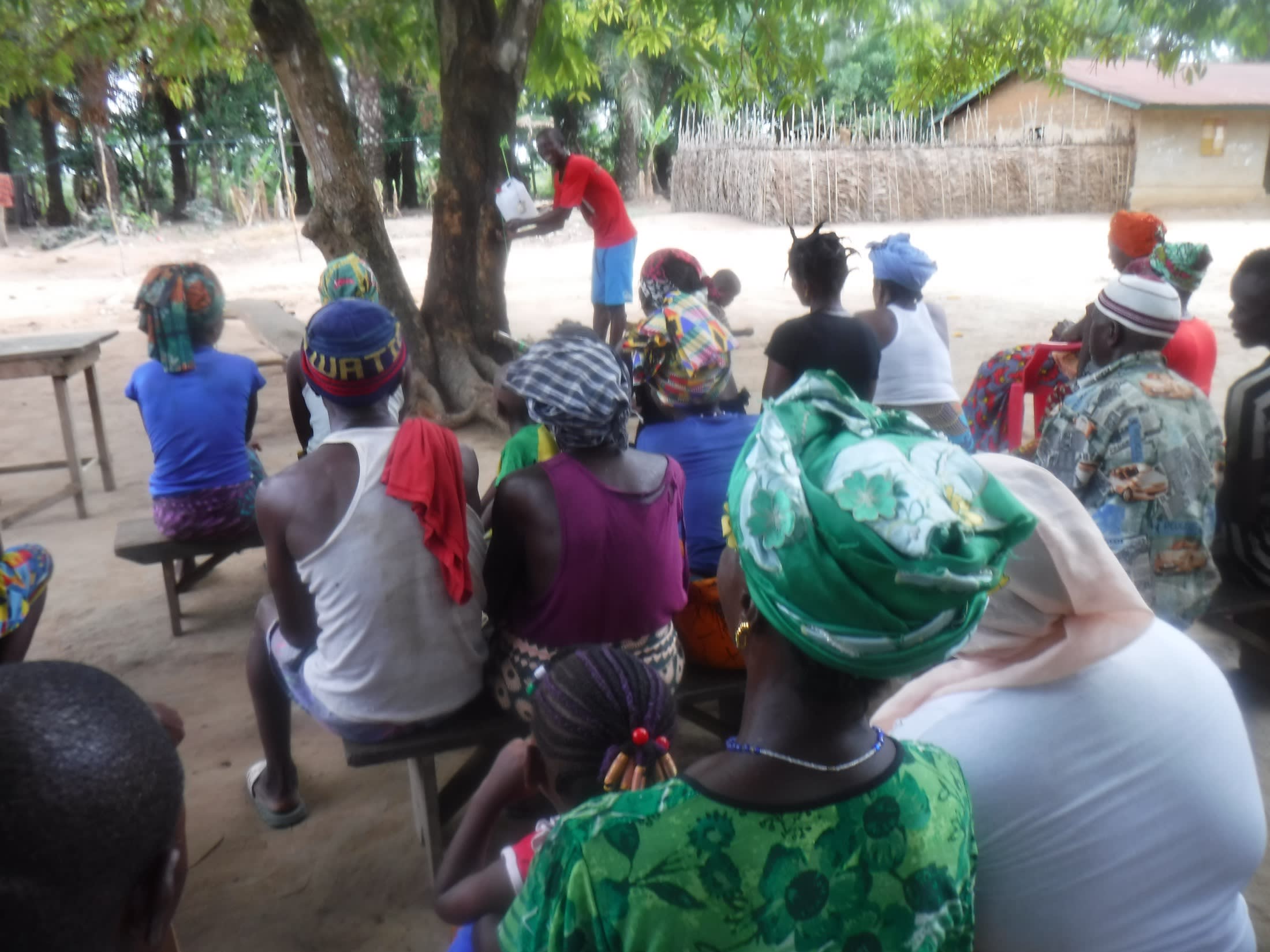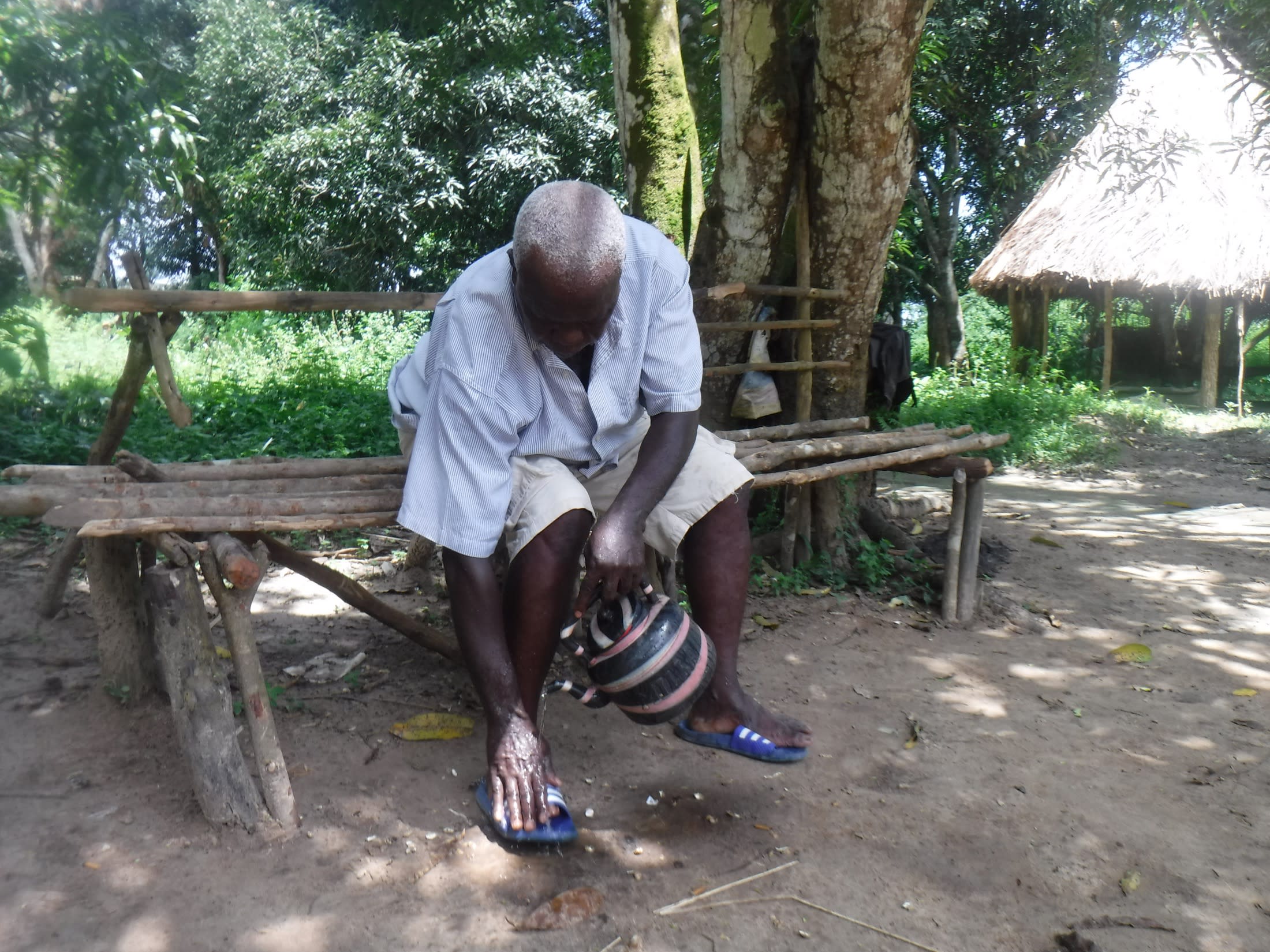The 350 people of Thawuya have not had clean water since the early 1990s, when the only protected hand-dug well pump was stolen during the civil war.
Since that time, the community has relied on a nearby stream for water. But lately, due to climate change, the stream has been running dangerously low every year, and during the annual dry season, it has become nearly nonexistent.
The current water source presents many challenges. It takes more than thirty minutes each way down a slippery footpath for villagers to collect water. A large portion of the community processes palm oil for their livelihood, but the amount of water needed for this task is large, which makes things difficult when people face water scarcity. People do not have the time and physical strength required to haul water back to the village, so it must be processed near the stream instead.

The stream's water quality has deteriorated over the years due to contamination, making it unsafe for human consumption. People bathe and do laundry near the water's edge, and when it rains, runoff containing fertilizer, human waste, and dirt dumps into the stream.

"The lack of safe and adequate water within the village limits every member of the community from practicing proper hygiene and sanitation. Since the stream is a bit away from the village, all young and old come there to bathe, launder clothes, and do all other household chores that require the use of water. Some will go as far as to defecate in the bushes and bathe when they get to the stream, all creating unfriendly and dangerous contamination to the water," said Mohamed Sallieu Kamara, a 69-year-old farmer.
 "I started school when I was ten years old and old enough to walk the more than three miles to the nearest school," said Isatu S., 17. "Most of the other students end up dropping out of school because of the provocation (teasing) of being too big to be in primary school. Walking the long distance every morning [to the stream] before venturing the three-mile walk [to school] leaves me exhausted, sometimes missing [school] days."
"I started school when I was ten years old and old enough to walk the more than three miles to the nearest school," said Isatu S., 17. "Most of the other students end up dropping out of school because of the provocation (teasing) of being too big to be in primary school. Walking the long distance every morning [to the stream] before venturing the three-mile walk [to school] leaves me exhausted, sometimes missing [school] days."
The mosque located at the center of the village is a perfect place for a new community water point. People from both sides of the village will easily access it. Instead of wasting time collecting water from the stream, which currently takes up more time than any other daily chore, they'll reserve their time and energy for more productive things.
What we can do:
New Well
Where we will be drilling is centrally located and will relieve many people of the long journey to fetch water and the challenge of accessing clean water.
Our team will drive over the LS200 mud rotary drill rig and set up camp for a couple of nights. Once the well is drilled to a sufficient water column, it will be cased, developed, and then tested. If these tests are positive, our mechanics will install a new India Mark II pump.
By drilling this borehole, Thawuya and the surrounding community will be provided with plenty of accessible, clean drinking water.
Training
There will be hygiene and sanitation training sessions offered for three days in a row.
Community members will learn how to make a hands-free handwashing station called the "tippy-tap." We will use these tippy taps for handwashing demonstrations and will also teach about other tools like dish racks and the importance of properly penning in animals. We will highlight the need to keep restrooms clean, among many other topics.
This training will also strengthen a water user committee that will manage and maintain this new well. They will enforce proper behavior and report to us whenever they need our help in solving a serious problem, like a pump breakdown.

 Borehole Well and Hand Pump
Borehole Well and Hand Pump
 Rehabilitation Project
Rehabilitation Project































